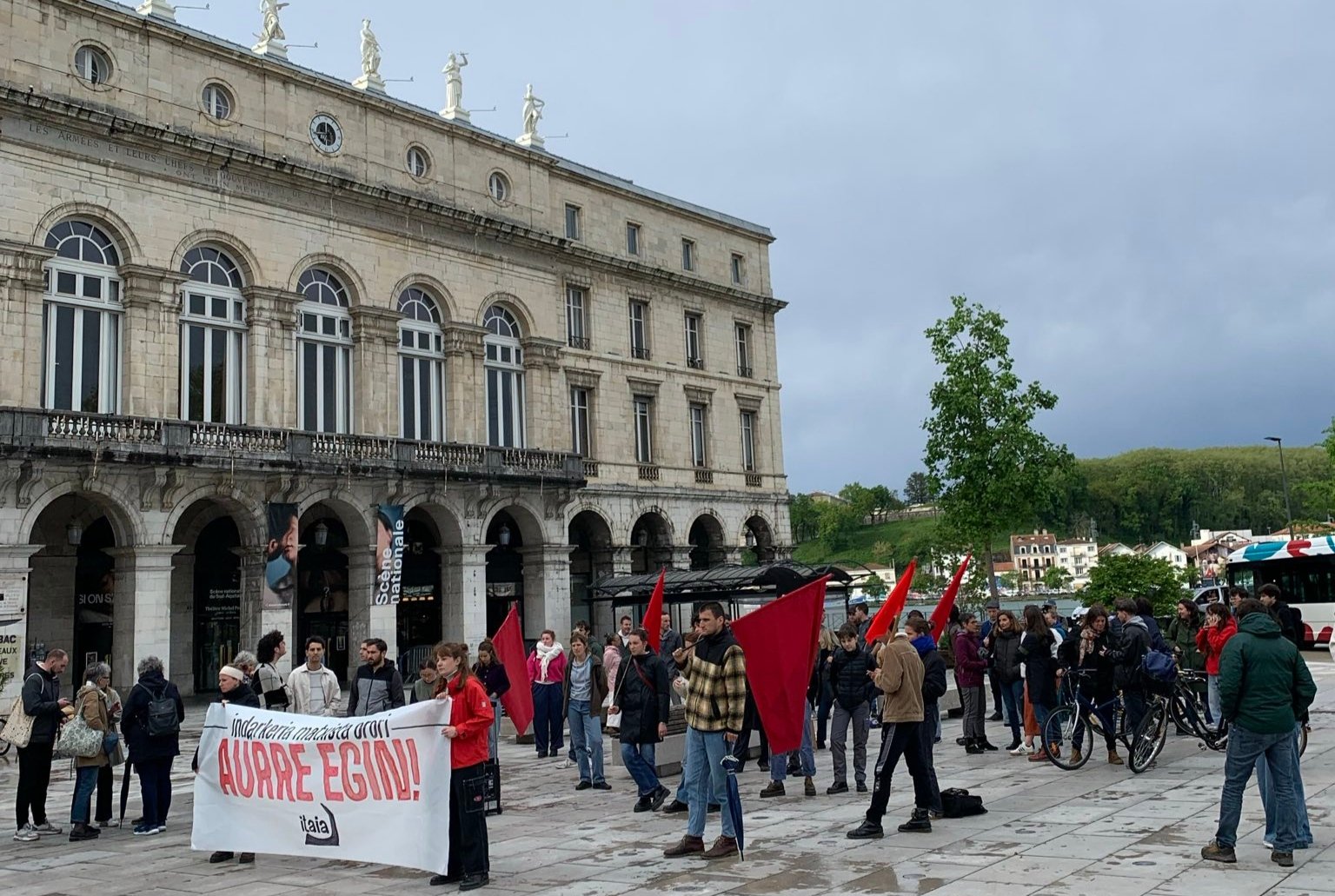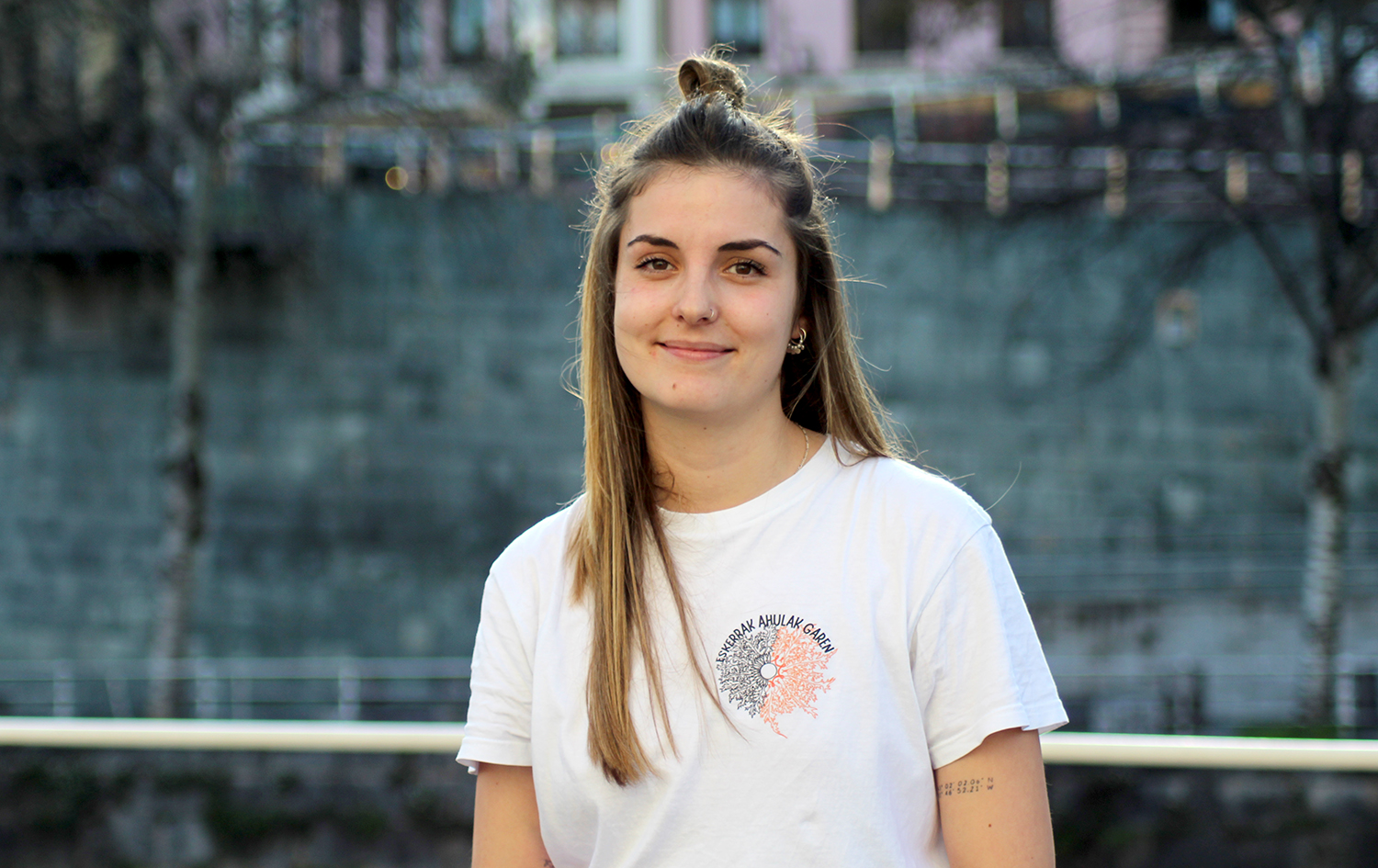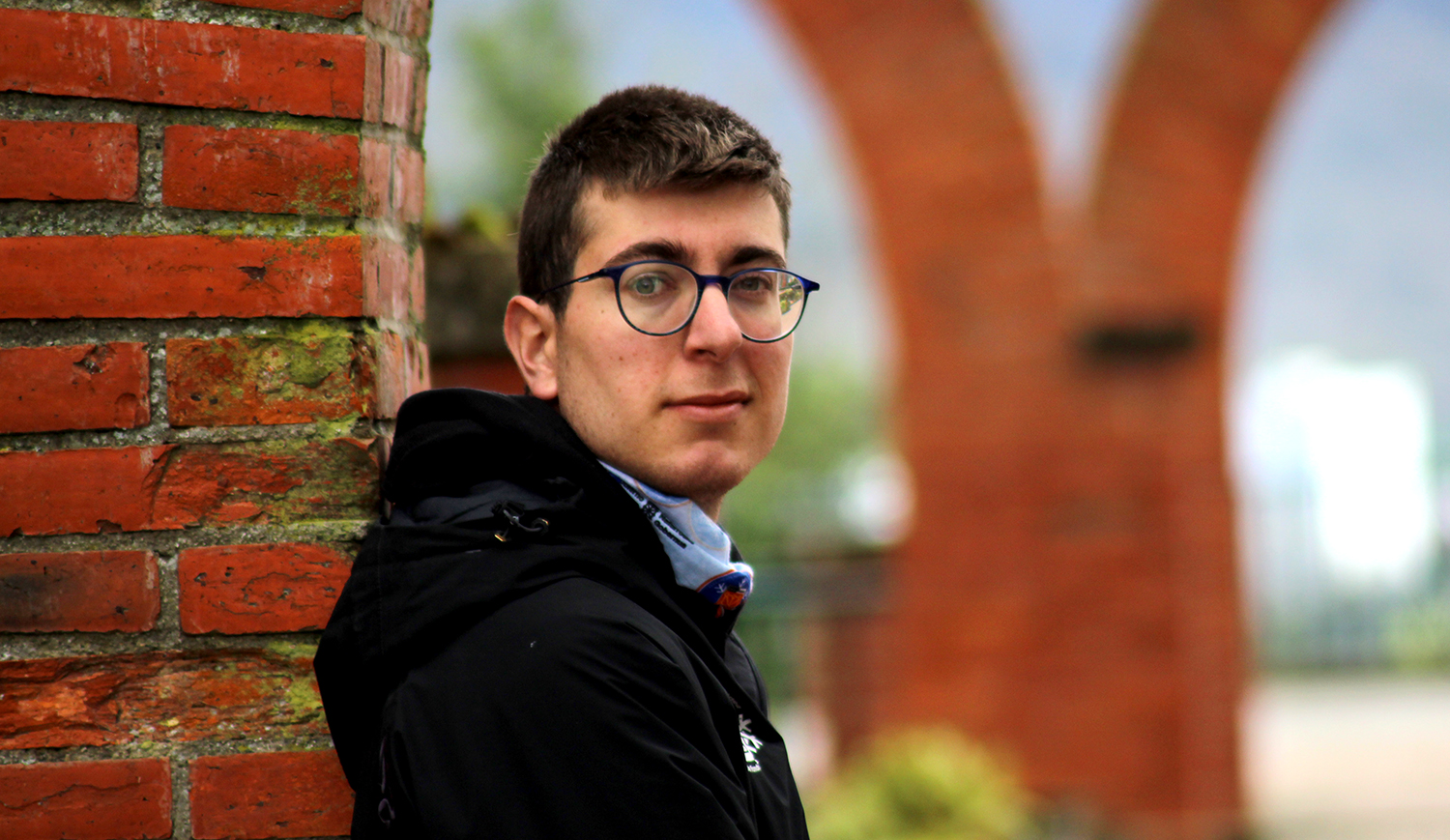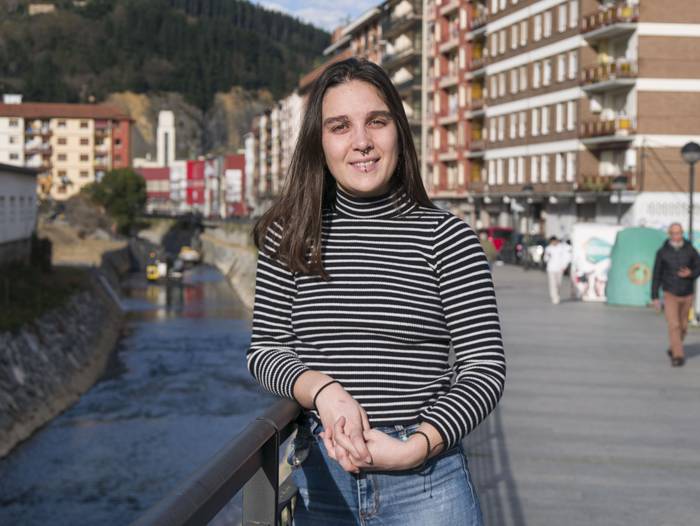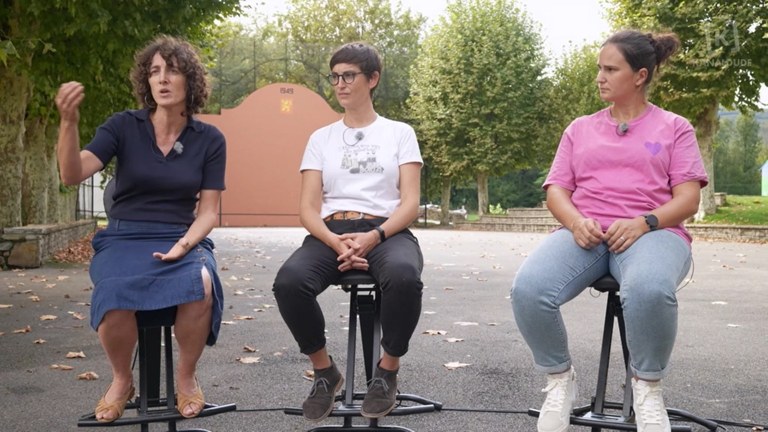The next challenge: take power
- Euskal Herriko Bilgune Feministak Emakume Abertzaleen VI. On December 13 he organized the Feminist Meetings. With Ondarroa’s Cofrady on the shoulder (600 people), an intense, content-filled round table was held. They explained that the next challenge is to take power: to influence political decisions, to be hegemonic, to redefine the main concepts from feminism and to achieve as a final objective a (trans)Basque feminist state.
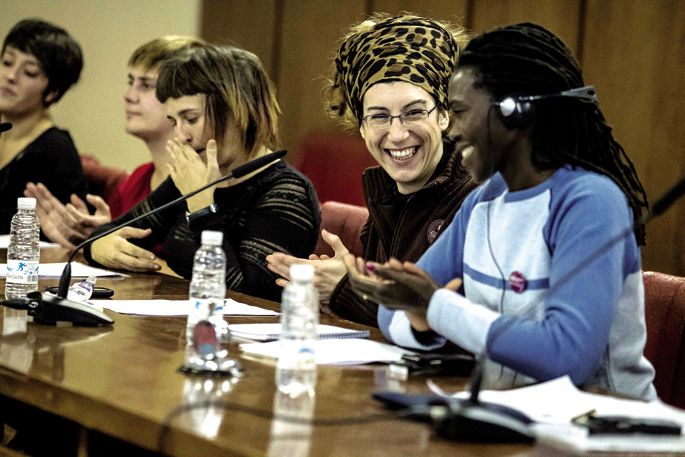
They sat at the table. Josebe Iturrioz (technique of equality), Saioa Iraola (Bilgune Feminista), Ainhoa Etxaide (general secretary of LAB), Jule Goikoetxea (professor of the UPV/EHU), Ana Murcia and Jeanne Roland (members of the Garaipen group), and Idurre Professor The table was led by Miren Aranguren, a member of Bilgune Feminist.
The Basque feminist state as an objective
Jule Goikoetxea: Feminist state, that's the goal. If the objective of the Catalan National Transition is independence, we must also shape our own, specifying concrete objectives. What is the Basque feminist state going to be and how are we going to achieve it? But not in 20 years, but in 5 years? We have to set deadlines and comply with them. It's time to move from resistance to counterattack. I shall make a detailed proposal: Creation of the Council of State of Feminists.
Josebe Iturrioz: Feminism is not just for women, it's an ollistics proposition and it's not an appendix. The most interesting proposal in the world is that made by feminism. We touch every field, we have developed a lot of thoughts, practices… The boundaries of states cause me a problem: we want a state, but we go beyond borders to develop feminist strategies.
J. Goikoetxea: Feminism seeks equality. And that equality is imposed through the power of the State. For example, socio-economic equality. That is why I attach importance to state structures. We want power to do something. Today what brings us the most resources is the state, so I don’t talk about the feminist society, the feminist community… I talk about the feminist state.
What is democracy for feminists? Or what is it not? We will not accept the patriarchal meanings of democracy. We have to socialise what democracy is, otherwise they tell us what democracy is, and that meaning is not for us. We have to gain authority, that is, if we say that this is democracy, this is democracy. We have to redefine the concepts, we have to construct the truth. Today, democracy means well-being, within five years, democracy has to say feminism. That can and must be done.
The feminist construction of the State means thinking about the idea of the State from feminism. Why feminism? Feminism is the only ideology that is making integrative proposals. Feminism is not for a sector, feminism is another way to build all the people.
What is the feminist state? And what is feminist democracy? There is no democracy without a state. What is it? Whoever makes feminist public policy, who makes feminist laws… there must always be feminist movement or counter-feminist. The two areas are always needed. The demands of the movement must be assumed and implemented by the State. But everything that is institutionalized gets corrupted, which is why movement is always needed, countering. This is key. The two axes are necessary, so far we have always been democratizing the systems, but we are very slow, because the equivalent always has less resources, so the counter-charge is the counter-charge.
J. Iturrioz: Let's invent other terms. As soon as we start talking about “feminist state”, feminism has fallen on us, we have focused on the state. Let’s use “transfeminism”.
Ainhoa Etxaide: Congratulations, in the previous meetings you brought a lot of equality technicians out of the closet (everyone said “I am also a technician”) and today you will be taking the statalists out of the closet. But with one condition: the state does, if it's a feminist.
Ana Murcia: Is it possible that he is afraid of the state? I, at least, have doubts that the state has to exist. I claim the right to non-conformity. If I see the priority in other areas, I will focus on that. How do we get women to become transformative subjects?
Influencing decisions and policies
J. Goikoetxea: The objective would be to turn feminists into interlocutors at the state level. In the welfare state, trade unions are official partners. We must ensure that feminists are interlocutors and that all laws have to go through feminism.
Saioa Iraola: The feminist movement must have political recognition. We must achieve the capacity for dialogue with the other parties and agents.
Jeanne Roland: How do we get politicians to build a political agenda shared with feminist groups?
A. Etxaide: We have to be political subjects and determinants. They are deciding things and we did not decide them. Let us be honest: How many political decisions have the feminist movement been asked for? That's the strength, the ability to condition.
J. Iturrioz: Sitting in the public I see many familiar faces dedicated to political parties, and although they are very majos, how far have your feminist proposals taken into account? We do not give them our speeches free of charge, so that they will then continue to tread on us. We have already said when it comes to deciding that feminists do not call us from political parties, please call us!
Intersections: social class, race...
A. Murcia: Structural changes have now come to this place in the world, but feminists from other parts of the world have been discussing it for many years, and that is the situation of many feminist immigrants. The goal is for transfeminist society to be multicultural and not to be a single vanguard, homogeneous, white and middle class social classes.
A. Etxaide: I know no avant-garde political subjects drowned in poverty. I’ve been tired of hearing that “in Euskal Herria we live very well”: at this table we are sitting eight people and we have very different conditions. 6-7 years ago there was talk of the glass ceiling. We are now talking about basic rights and living conditions being stolen from us, the question is how to recover the old conditions, emphasising that they were not good.
J. Roland: International relations are built in power and domination. They become conscious and put themselves on the table. We have come to a country that has spent years trampling our countries, and indigenous women have taken indirect advantage of the benefits of this oppression. How do we work the political discourse to place it as a woman and an immigrant, when racism is in force? How to show that women from outside are a threat to women here, to Euskera, to job opportunities… We are Basque and Basque!
Idurre Eskisabel: We need a new Amaiur. Forget the military epic drawn with men with swords and complete an Amaiur with precarious and migrant workers.
Many Basque feminists have been disappointed to learn that writer Chimamanda Ngozi Adichie has externalized pregnancy, meaning that a surrogate has fertilized her baby for money.Adichie is the author of the essay We should all be feminists, among others. They have ignored the... [+]
Indartsua, irribarretsua eta oso langilea. Helburu pila bat ditu esku artean, eta ideia bat okurritzen zaionean buru-belarri aritzen da horretan. Horiek dira Ainhoa Jungitu (Urduña, Bizkaia, 1998) deskribatzen duten zenbait ezaugarri. 2023an esklerosi anizkoitza... [+]
Gozamen aparta bezain deskribatzeko zaila dakar, norbaiten hitzak irakurri edo entzun ostean, zera pentsatzeak: “Horixe zen neu aurreko hartan azaltzen saiatu nintzena!”. Idazlea eta itzultzailea da María Reimóndez, eta galegoz aritzen da, hizkuntza... [+]
Orain arte desgaituak ez diren pertsonekin lehiatu da Uharteko Ipar Eski Taldeko Eneko Leyun eskiatzailea (Iruñea, 1998). 2024-2025 denboraldian, lehenengo aldiz parte hartu du Adimen Urritasuna duten Pertsonentzako Iraupeneko Eskiko Espainiako Txapelketan. Urrezko... [+]
Joan den urte hondarrean atera da L'affaire Ange Soleil, le dépeceur d'Aubervilliers (Ange Soleil afera, Aubervilliers-ko puskatzailea) eleberria, Christelle Lozère-k idatzia. Lozère da artearen historiako irakasle bakarra Antilletako... [+]
Endometriosiaren Nazioarteko Eguna izan zen, martxoak 14a. AINTZANE CUADRA MARIGORTAri (Amurrio, 1995) gaixotasun hori diagnostikatu zioten urtarrilean, lehen sintomak duela lau urte nabaritzen hasi zen arren. Gaitz horri ikusgarritasuna ematearen beharraz mintzatu da.
Duela aste batzuk, gurean egon ziren El Salvadorko eta Kanarietako emakumeen eskubideen aldeko hainbat aktibista. Sexu- eta ugalketa-eskubideez eta eskubide horiek urratzeak emakumeengan dituen ondorioez aritu gara; hala nola El Salvadorren berezko abortuak izanda homizidio... [+]
Zuberoako ohiturei buruzko bi liburu ditut gogoan. Batek XX. mendean aritu izan diren 180 dantzari eta soinulari aipatzen ditu. Haien artean, emakumezkorik ez da agertzen. Besteak, pastoralei egiten die errepasoa eta hor emakumeak aipatu aipatzen dira, baina omisio esanguratsuak... [+]
1984an ‘Bizitza Nola Badoan’ lehen poema liburua (Maiatz) argitaratu zuenetik hainbat poema-liburu, narrazio eta eleberri argitaratu ditu Itxaro Borda idazleak. 2024an argitaratu zuen azken lana, ‘Itzalen tektonika’ (SUSA), eta egunero zutabea idazten du... [+]














